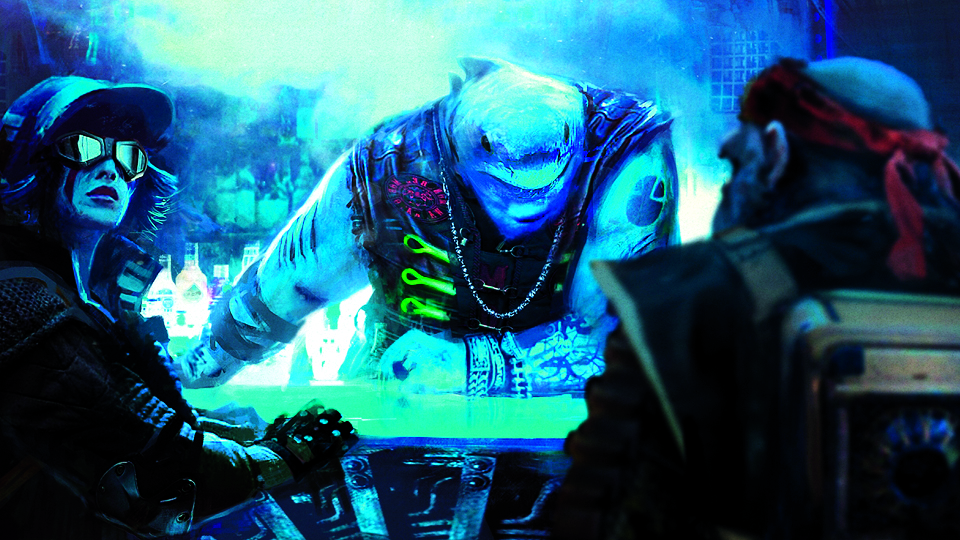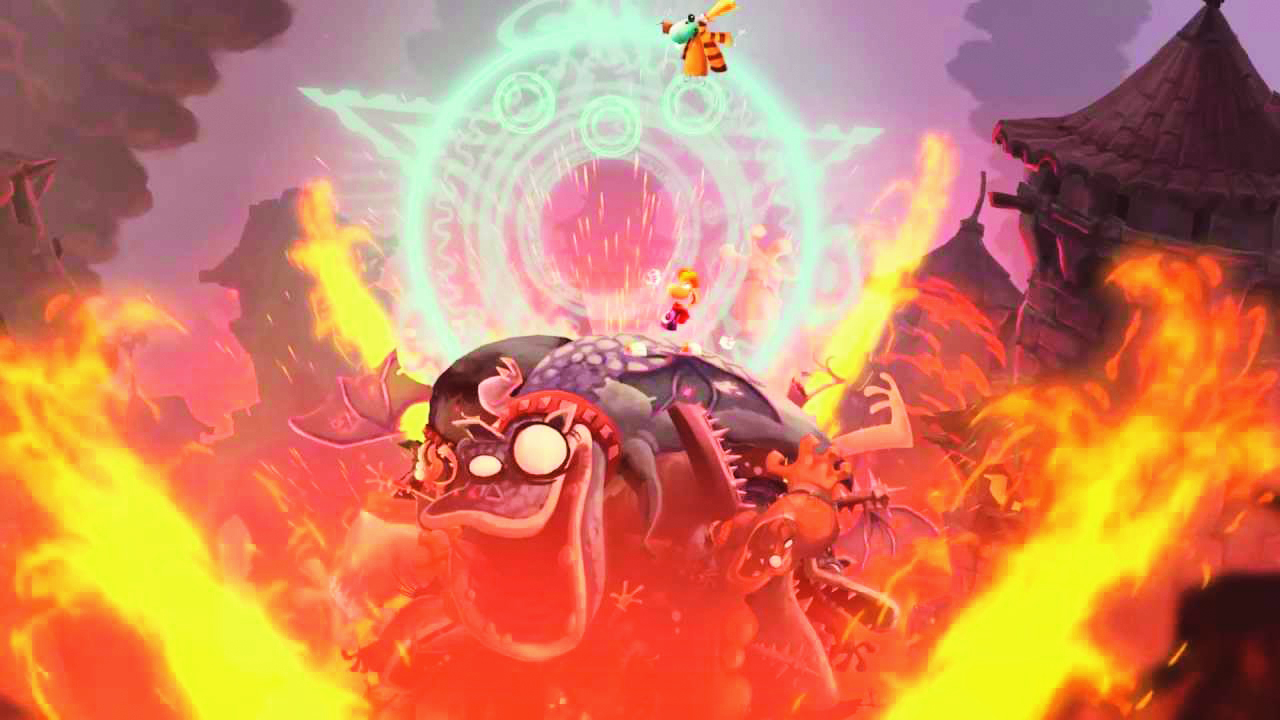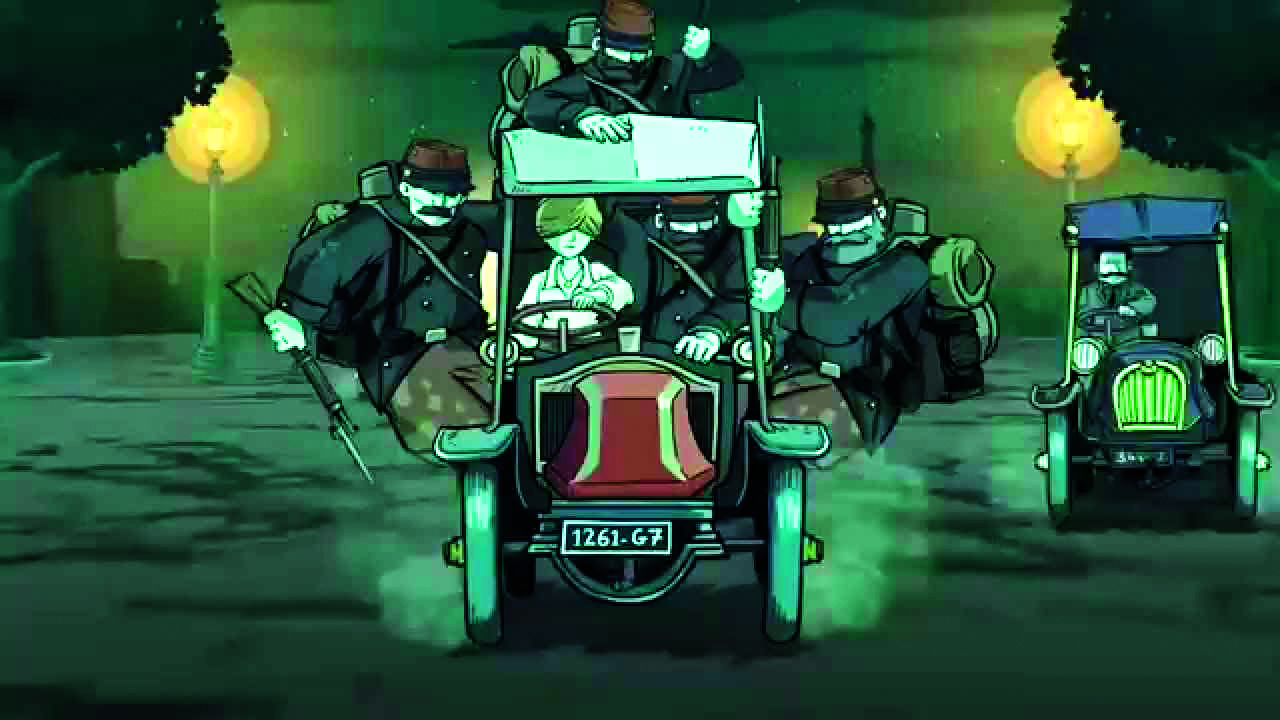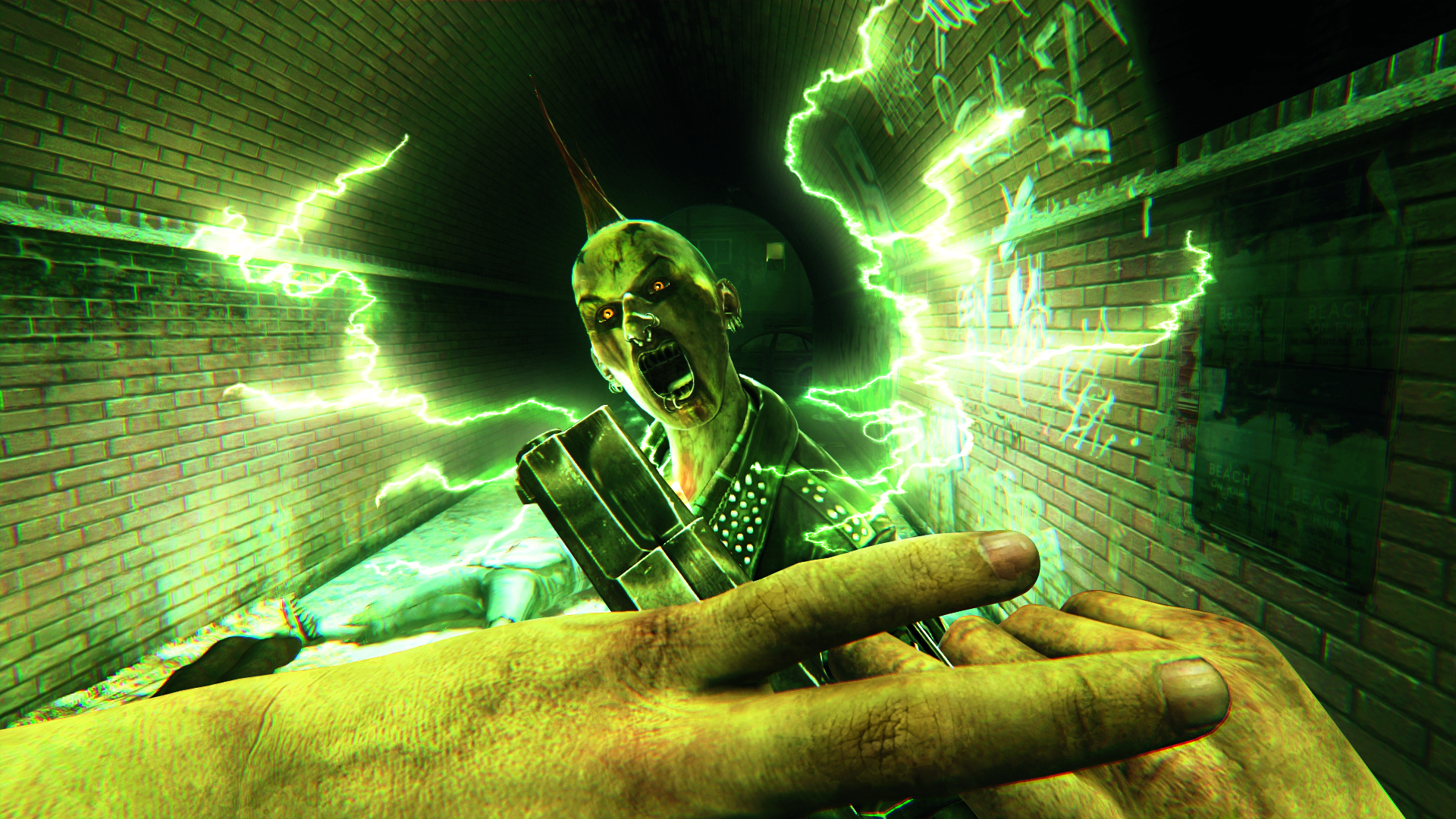How comedy, cartoons, and a connection to nature set Ubisoft Montpellier apart
It’s easy to see Montpellier as Ubisoft’s whimsical oddball child.
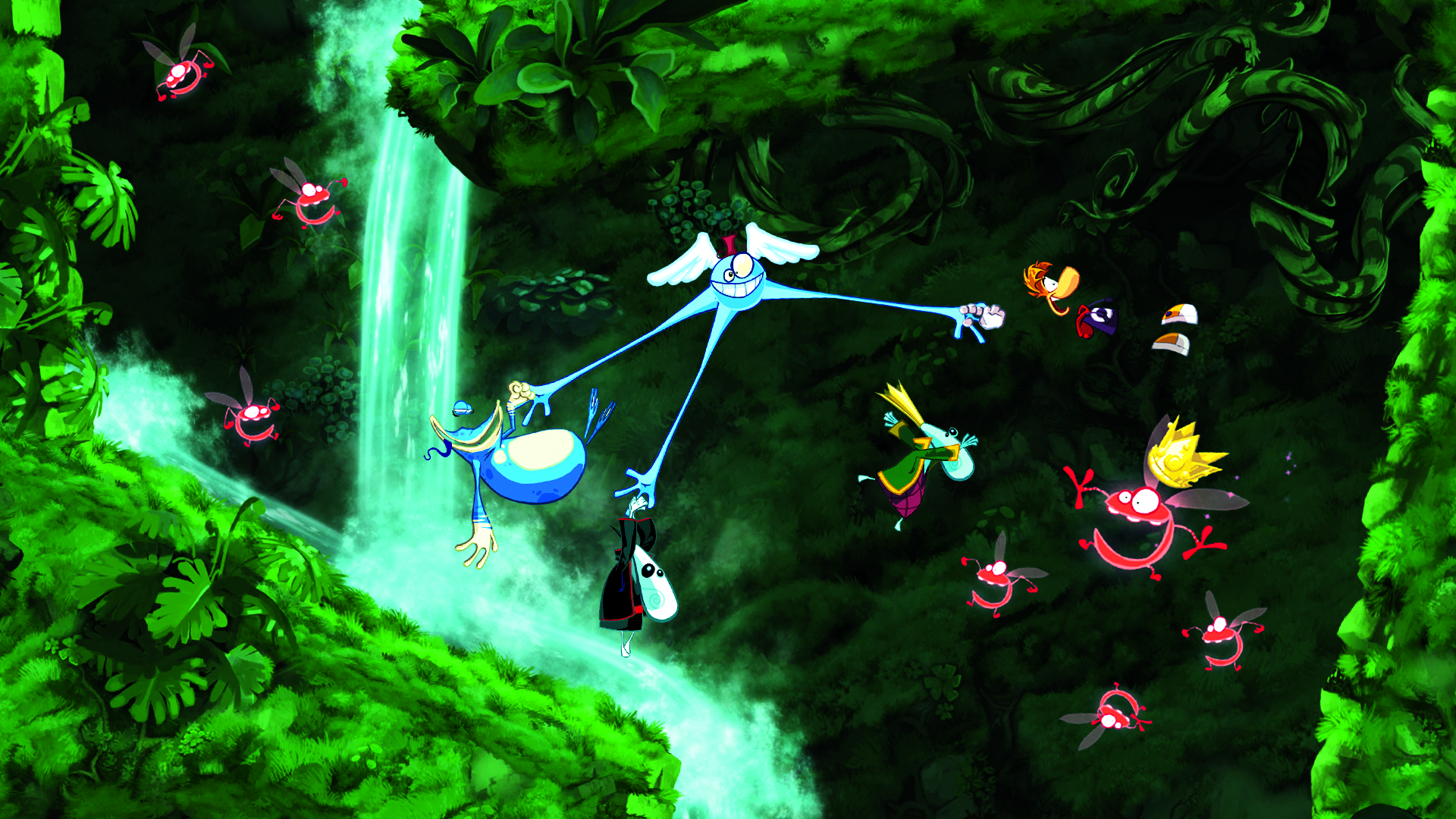
Keep up to date with the most important stories and the best deals, as picked by the PC Gamer team.
You are now subscribed
Your newsletter sign-up was successful
Want to add more newsletters?

Every Friday
GamesRadar+
Your weekly update on everything you could ever want to know about the games you already love, games we know you're going to love in the near future, and tales from the communities that surround them.

Every Thursday
GTA 6 O'clock
Our special GTA 6 newsletter, with breaking news, insider info, and rumor analysis from the award-winning GTA 6 O'clock experts.

Every Friday
Knowledge
From the creators of Edge: A weekly videogame industry newsletter with analysis from expert writers, guidance from professionals, and insight into what's on the horizon.

Every Thursday
The Setup
Hardware nerds unite, sign up to our free tech newsletter for a weekly digest of the hottest new tech, the latest gadgets on the test bench, and much more.

Every Wednesday
Switch 2 Spotlight
Sign up to our new Switch 2 newsletter, where we bring you the latest talking points on Nintendo's new console each week, bring you up to date on the news, and recommend what games to play.

Every Saturday
The Watchlist
Subscribe for a weekly digest of the movie and TV news that matters, direct to your inbox. From first-look trailers, interviews, reviews and explainers, we've got you covered.

Once a month
SFX
Get sneak previews, exclusive competitions and details of special events each month!
There’s little to recommend the game that built Ubisoft Montpellier today. Rayman was a brutal hangover from the SNES and Mega Drive era of 2D platformers, a cruel cavalcade of spike pits and memory-test bosses. Its protagonist was a bequiffed berk with no limbs and even less charisma; his world a nonsensical mishmash of poachers, pirates, and washerwomen, in which even static objects unsettled you with their big, googly eyes.
And yet there was still something about it. The scrolling was smooth, and those cartoon graphics stunned audiences at the time. Over four million played it, establishing Ubisoft as a publisher and Montpellier as an idiosyncratic part of the mainstream.
Then the series went 3D, which, thankfully, necessitated a total reinvention. Rayman 2 kept the pirates, but scrapped the disparate stages. In interviews, the Montpellier team spoke of “coherence”—the idea that levels could start in the forest, sink progressively into the swamps, and emerge again on the coast by the end of the story. This attempt to give single-player campaigns a shape that honoured their fiction was the same that had wowed Half-Life players a year before, and elevated Rayman 2 to more than the sum of its platforming parts. Rayman himself became something of an environmental avenger—the hero of a world which was fading fast, its heart ‘exploded’ by an army of slavers and industrialists. He was actually becoming borderline likeable and not totally detestable like some other platforming mascots that tend to flood videogames.
Infinity and Beyond
By the time of the new millennium, Montpellier was made up of proficient worldbuilders, perfectly primed to make Beyond Good & Evil. While the picturesque planet of Hillys wasn’t a true open world—rather a patchwork of Mediterranean townscapes and long lakes separated by brief loading screens—it grounded players in its strange setting by giving them the latitude to explore, by foot and by hovercraft.
The influences were as far-flung as any in the original Rayman, Ghibli-esque aesthetics bumping up against Bulgarian rap and rhinoceri in Jamaican dress. But this time, they cohered, thanks to the narrative glue laid by Ancel and his co-writer, Jacques Exertier.
Common themes in the studio’s games began to emerge: their slapstick comedy, musical rhythm, and appreciation for nature. Each one began at the foot of an old tree, and spiritually speaking, tied itself to the trunk—asking you to stand against the destruction of ecosystems and communities.
Beyond Good & Evil even armed players against greed and exploitation, teaching them to reject the spin of powerful interests and seek out the truth for themselves. It cast them as Jade, not a fighter but a photojournalist—somebody whose duty was to preserve and inform. Then it surrounded her with charming, bumbling characters, like the cantankerous pig Peyj, a clear update of Rayman’s rotund-yet-rubbery amphibian sidekick, Globox. If Montpellier was going to serve up a bitter pill to the public, the studio was determined to hide the lesson in jelly, and laugh at the way it wobbled.
Keep up to date with the most important stories and the best deals, as picked by the PC Gamer team.
Ape Escape
Perhaps that sugar coating wasn’t sweet enough; Beyond Good & Evil didn’t sell very well. But it did cement Montpellier’s reputation as Ubisoft’s critical darlings, granting the publisher credibility beyond the Clancy franchise it had purchased with Red Storm. Somehow Peter Jackson got wind, and selected Montpellier to adapt King Kong. Ancel answered the call with an experimental FPS that jettisoned health bars and ammo counts in favour of exposing your whole face to the drenching rain of Skull Island.
Peter Jackson’s King Kong: The Official Game of the Movie, as it’s properly and hilariously called, teaches you to respect its natural world by making you its lunch. With a few bullets and whatever sharp bones you can wrench from the skeletons of fellow unfortunates, you’re forced into a primordial battle with the local ecosystem—a frightening breeding ground for magnified insects and actual dinosaurs. The DNA of this desperate, survivalist adventure can be found in Zombi, the undead shooter made just across town from the sun-baked residential house that, for many years, housed Ancel and his team.
There’s a certain southern French ‘je ne sais quoi’ that often seeps into Montpellier’s work. Even now, a Rayman game typically starts with the hero snoozing away in a hammock or propped against a mossy tree, the sound of his snoring irritating his enemies. The walls of the studio’s villa kept projects small while other Ubisoft teams grew large and anonymous; when Another World creator Éric Chahi was given the choice of Ubisoft offices to work on a spiritual successor to Populous, he picked Montpellier over Paris.
Dust Mates
Though Chahi has his own voice, his collaboration with Montpellier reinforced its regular themes. In From Dust, you spread the reach of nature across a barren land, harnessing lava and water to grow vegetation. You control the trees and the seas by learning their essential melodies; as the game puts it “when the music fluctuates, so do the elements, because all is movement and music is the reflection of this movement”.
It’s easy to see Montpellier as Ubisoft’s whimsical oddball child, allowed to think small while other studios make the money. But its technology has fuelled the empire. Beyond Good & Evil’s Jade engine powered the Prince of Persia series, while the studio’s facial animation showed up in Assassin’s Creed, and Rayman’s UbiArt Framework kicked off the publisher’s faux-indie boom with Child of Light and Valiant Hearts.
For Beyond Good & Evil 2, the tech is more ambitious than ever—said to cover an entire solar system—and some have wondered whether Montpellier’s googly eyes could be bigger than its stomach. More concerning was the report last year from French newspaper Libération, in which around 15 Ubisoft Montpellier employees described Ancel as a “toxic” personality, whose mismanagement led a dozen developers to burn out—accusations which Ancel denies. After an investigation, Ubisoft CEO Yves Guillemot reportedly decided to “renew his trust” towards Ancel. But the Rayman director is no longer working at the studio, having suddenly retired from game development. His next place of employment? A wildlife sanctuary. Who’d of thunk it?
Montpellier has already proved that it can make great games without Ancel as director. The question is whether its offbeat identity can survive the pressure of becoming the lead studio on what Ubisoft staff ominously refer to as a “AAAA” game. It remains to be seen how much stress this ancient oak can take.
Jeremy Peel is an award-nominated freelance journalist who has been writing and editing for PC Gamer over the past several years. His greatest success during that period was a pandemic article called "Every type of Fall Guy, classified", which kept the lights on at PCG for at least a week. He’s rested on his laurels ever since, indulging his love for ultra-deep, story-driven simulations by submitting monthly interviews with the designers behind Fallout, Dishonored and Deus Ex. He's also written columns on the likes of Jalopy, the ramshackle car game. You can find him on Patreon as The Peel Perspective.
